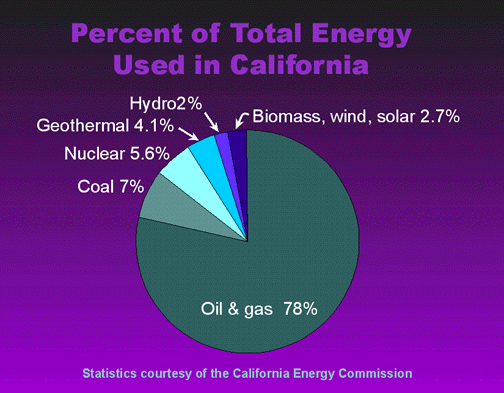
Natural Resource- A material source of wealth, such as timber, fresh water, or a mineral deposit, that occurs in a natural state and has economic value.

Petroleum and natural gas are California's leading mineral resources. Boron, cement, and sand and gravel are also important.In 1996, the California produced about 13 percent of the natural gas it used, 49 percent of the petroleum and 75 percent of the electricity. California either produces on its own, or imports from other states, 90 percent of the energy it consumes. The remaining 10 percent consists of electricity purchases from other western states and Canada, natural gas purchases from Canada, and crude oil imported from Indonesia. California leads the world in developing new and advanced energy technologies. At the heart of its energy success is a guiding policy that the state's economy is best served by a diversity of energy supply. This "portfolio" approach to energy policy has established the state as an international leader in demonstrating new transportation fuels and vehicles; renewable energy such as biomass, solar, wind and geothermal technologies; and energy efficiency. Californian is proud of its "leading edge" role in the use of energy efficiency techniques and products. Since 1977 when the California Energy Commission's energy efficiency standards for buildings and appliances went into effect, consumers have saved more than $11 billion in natural gas and electricity costs; compared to what they would have spent without the standards. The state's focus on energy efficiency places it 49th in per capita energy consumption among the 50 states. California's standards have become a model for other states and the entire nation.
General information site on California natural resources